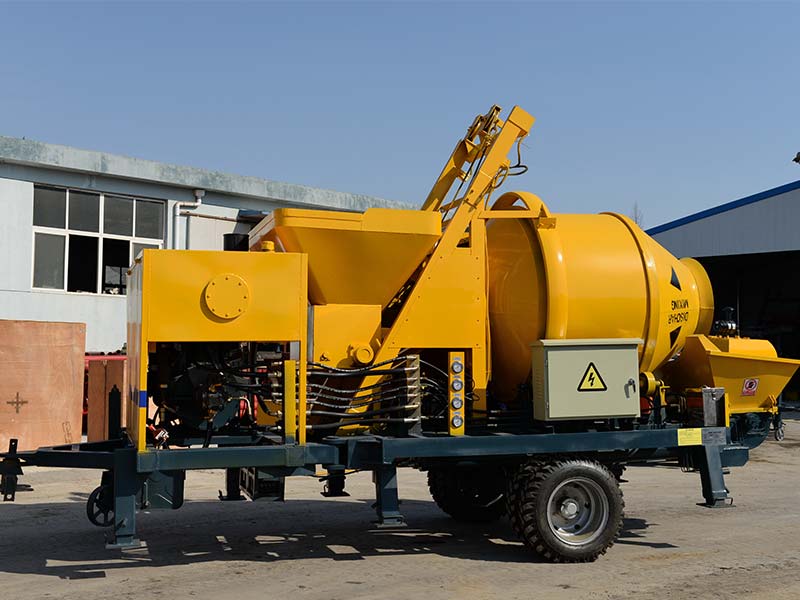What are the main types of Concrete Pumps?
Concrete pumps are crucial equipment in construction projects, facilitating the efficient and precise delivery of concrete to various locations on a construction site. Understanding the different types of concrete pumps available is essential for ensuring optimal performance and productivity in construction endeavors. In this comprehensive guide, we delve into the main types of concrete pumps, their unique features, and the applications for which they are best suited.

1. Trailer-Mounted Concrete Pumps
Trailer-mounted concrete pumps are versatile machines designed for mobility and ease of use. These pumps are mounted on a trailer or truck, allowing for easy transportation between job sites. They are ideal for small to medium-sized construction projects, such as residential buildings, sidewalks, and foundations. With their compact design and maneuverability, trailer-mounted concrete pumps offer flexibility in accessing tight or confined spaces on construction sites.
2. Boom Concrete Pumps
Boom concrete pumps, also known as truck-mounted concrete pumps, feature a robotic arm (boom) attached to a truck chassis. This arm can extend and maneuver in various directions, enabling precise placement of concrete at elevated or hard-to-reach locations. Boom pumps are commonly used in large-scale construction projects, such as high-rise buildings, bridges, and infrastructure developments. Their ability to deliver concrete directly to the desired location makes them indispensable for projects requiring vertical or horizontal reach.
3. Stationary Concrete Pumps
Stationary concrete pumps are fixed in place and are typically used for high-volume concrete placement over extended distances. These pumps are commonly employed in large-scale construction projects where a continuous and steady supply of concrete is required, such as industrial complexes, dams, and tunnels. Stationary pumps are known for their robustness and reliability, making them suitable for demanding applications that require consistent performance over prolonged periods.
4. Line Concrete Pumps
Line concrete pumps, also referred to as trailer-mounted concrete pumps with a stationary or towable pump, are versatile machines designed for medium to large-scale construction projects. Unlike boom pumps, which utilize a robotic arm for placement, line pumps employ a series of pipes (or lines) to transport concrete from the pump to the desired location. Line pumps are well-suited for projects with moderate vertical and horizontal reach requirements, such as residential and commercial buildings, as well as infrastructure upgrades.
5. Specialized Concrete Pumps
In addition to the main types mentioned above, there are specialized concrete pumps designed for specific applications and unique construction challenges. These include:
Shotcrete Pumps: Specifically designed for spraying shotcrete (a mixture of concrete and additives) onto surfaces, shotcrete pumps are commonly used in tunneling, mining, and slope stabilization projects.
Hydraulic Concrete Pumps: Utilizing hydraulic power for enhanced efficiency and performance, hydraulic concrete pumps are favored for their versatility and ability to handle a wide range of concrete mixes.
Squeeze Concrete Pumps: Also known as peristaltic pumps, squeeze concrete pumps employ a squeezing action to propel concrete through a hose, making them suitable for projects requiring precise dosing and minimal pulsation.
Conclusion
Understanding the main types of concrete pumps is essential for selecting the most suitable equipment for a construction project. Whether it's a small-scale residential development or a large-scale infrastructure endeavor, choosing the right concrete pump can significantly impact project efficiency, cost-effectiveness, and overall success.
By exploring the features and applications of trailer-mounted, boom, stationary, line, and specialized concrete batching plants, construction professionals can make informed decisions that optimize productivity and performance on the job site.

Comments
0